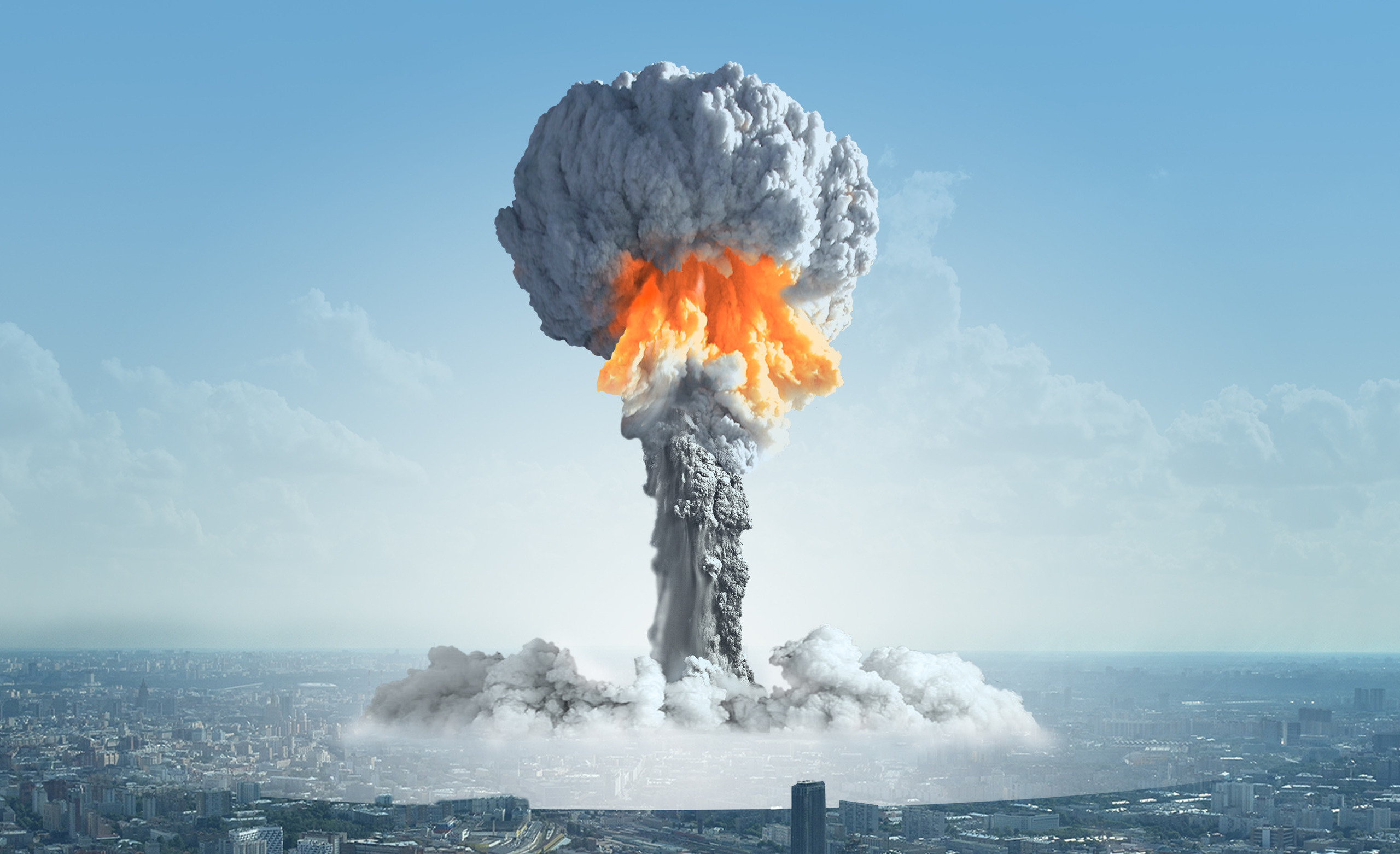
How To Survive A Nuclear Blast
In today’s uncertain times, knowing how to survive a nuclear blast is not just Hollywood fiction – it could be crucial for your survival. Picture this: a world suddenly plunged into chaos, the skies darkened by the ominous threat of a nuclear blast.
It’s a scenario straight out of a doomsday movie, but what if it became your reality? So buckle up and get ready to learn the essential steps to stay safe in the face of one of the most terrifying disasters imaginable.
Let’s dive into how you can prepare, react, and ultimately thrive in the aftermath of a nuclear blast.
Understanding the Threat of a Nuclear Blast
Nuclear blasts are not just events from history books or distant nightmares – they remain a real and present danger in today’s world. The sheer destructive power of a nuclear explosion is incomprehensible, capable of leveling entire cities within seconds. Understanding the threat starts with grasping the devastating effects of radiation exposure on human health and the environment.
The aftermath of a nuclear blast extends far beyond the initial explosion, as radioactive fallout can contaminate vast areas for years to come. The invisible enemy that is radiation poses long-term risks to those exposed, increasing the likelihood of cancer and other serious illnesses. Being aware of these dangers is crucial for anyone seeking to survive such a catastrophic event.
In times marked by global tensions and uncertainty, being informed about the potential consequences of a nuclear blast empowers individuals to make better decisions when faced with this grave threat.
Preparing for a Nuclear Blast
It’s crucial to take proactive steps in preparing for a nuclear blast, as the threat of such an event should not be underestimated. Begin by creating a family emergency plan that includes designated meeting points and communication channels. Stock up on essential supplies like non-perishable food, water, flashlights, batteries, and a first aid kit.
Educate yourself on the potential risks and warning signs of a nuclear attack so you can react swiftly if needed. Identify suitable shelter options in advance such as underground basements or reinforced buildings to reduce radiation exposure. Consider investing in radiation detection devices for added safety measures.
Stay informed about local emergency protocols and evacuation routes provided by authorities. Practice drills with your family to ensure everyone knows what to do in case of a nuclear threat. Remember that preparation is key to increasing your chances of survival during a catastrophic event like a nuclear blast.
What to do During a Nuclear Blast
As the threat of a nuclear blast looms, knowing what to do during such an event can make all the difference. If you’re outdoors when it happens, seek immediate shelter in the nearest building or underground structure. Stay away from windows and doors to minimize exposure to radiation.
If you’re indoors, move to the lowest level of your building, preferably a basement if available. Try to get as far away from exterior walls and roofs as possible. Once there, take cover under a heavy piece of furniture like a table or desk to protect yourself from falling debris.
Remember that time is crucial during a nuclear blast; act quickly and decisively. Turn off ventilation systems and seal any cracks around windows and doors with plastic sheeting or duct tape if possible.
Stay tuned for emergency broadcasts on radio or TV for further instructions on evacuation routes or safe zones in your area.
Aftermath and Surviving in the Fallout
After a nuclear blast, the aftermath can be chaotic and overwhelming. Surviving in the fallout zone requires quick thinking and preparedness. The first priority is to find shelter immediately to protect yourself from radiation exposure. If you are caught outside during a blast, seek cover behind any solid structure or lie flat on the ground with your hands covering your head.
Once you are safely inside, seal off all windows, doors, and vents to prevent radioactive particles from entering. Stay tuned to emergency broadcasts for updates on the situation and follow official instructions carefully. Avoid consuming contaminated food or water, as these can pose serious health risks.
If possible, have a supply of essential items such as non-perishable food, water, medical supplies, and a battery-powered radio on hand. Be prepared to stay indoors for an extended period until it is safe to venture outside again. Keep calm and focus on staying safe amidst the uncertainty of the aftermath of a nuclear blast.
Essential Supplies for Nuclear Survival
When it comes to preparing for a potential nuclear blast, having the right supplies can make all the difference in your survival. Essential supplies for nuclear survival include items like non-perishable food, water, a first aid kit, flashlights with extra batteries, and a battery-powered or hand-crank radio.
Additionally, you’ll want to have dust masks or respirators to protect yourself from radioactive particles in the air. A whistle can be crucial for signaling for help if needed. Don’t forget about basic hygiene items like soap, toiletries, and sanitation supplies.
Having a supply of medications you may need on hand is vital. Keep important documents in a waterproof container. Consider having cash on hand as electronic transactions may not be possible during a disaster.
Remember that being prepared with these essential supplies can greatly increase your chances of surviving and staying safe in the event of a nuclear blast.
Alternative Options for Shelter and Protection
When it comes to surviving a nuclear blast, having alternative options for shelter and protection can be crucial. While traditional shelters like basements or designated fallout shelters are ideal, sometimes they may not be accessible or adequate.
In such cases, consider seeking refuge in sturdy buildings with thick walls and minimal windows. Places like underground parking garages or reinforced concrete structures can offer some level of protection against radiation.
If you’re caught outside during a nuclear blast, seek shelter in any available structure immediately. Look for areas that can shield you from the initial impact of the explosion and subsequent fallout.
Vehicles with metal bodies also provide some shielding from radiation if you’re unable to find a suitable building. Remember to turn off the ventilation system to prevent contaminated air from entering the vehicle.
Exploring different shelter options beforehand and staying informed about potential safe locations in your area can increase your chances of survival in the event of a nuclear disaster.
How to Stay Informed and Get Help During a Nuclear Disaster
In a nuclear disaster, staying informed is crucial for your survival. Make sure to have a battery-powered radio to receive emergency broadcasts as soon as possible. Tune in to official channels for updates and instructions on evacuation or sheltering.
Government websites and social media can also provide real-time information during a crisis. Follow reputable sources and avoid spreading rumors that could cause panic. Stay connected with family members through text messages if phone lines are overloaded.
If you need help during a nuclear incident, call emergency services immediately but be prepared for delays in response times due to the scale of the disaster. Local authorities will provide guidance on where to seek medical assistance or find safe shelters.
Prepare an emergency communication plan with your loved ones beforehand so everyone knows how to stay connected and get help when needed. Keeping calm and following official guidance can make all the difference in navigating through a nuclear disaster successfully.
Mental and Emotional Preparation for a Nuclear Blast
In the face of a nuclear blast, mental and emotional preparation is just as crucial as physical readiness. The thought of such a catastrophic event can be overwhelming, but staying calm and focused is key to survival.
It’s natural to feel scared or anxious about the unknown, but try to stay informed and educated on what steps to take in case of a nuclear emergency. Creating a plan with your loved ones can help alleviate some of the stress and provide a sense of control.
Practice mindfulness techniques like deep breathing or meditation to keep your mind clear amidst chaos. Remember that panic only hinders rational decision-making in times of crisis.
Building a strong support system and leaning on others for emotional support can make all the difference during challenging times. Take care of your mental health by staying connected with friends and family members.
Stay positive, adaptable, and resilient – these qualities will serve you well not just during a nuclear disaster, but in any adversity life throws your way.
Conclusion: Staying Safe in the Face of a Nuclear Threat
In times of unprecedented danger, knowing how to survive a nuclear blast can make all the difference. Understanding the threat, preparing for it, and staying informed are crucial steps towards ensuring your safety and that of your loved ones.
By stocking up on vital supplies, seeking alternative shelter options where possible, and mentally preparing yourself for the worst-case scenario, you increase your chances of survival in a nuclear disaster. Remember to stay calm, follow emergency instructions diligently, and prioritize safety above all else.
While facing a nuclear threat can be terrifying, being well-prepared and informed empowers you to navigate through even the most challenging situations. Above all else, remember that staying safe is paramount – adaptability and readiness are key when it comes to surviving a nuclear blast. Stay vigilant, stay prepared, and stay safe.




I truly hate the thought of a nuclear attack. An EMP would probably be the better scenario, but still devastating. But I took believe it is possible. I believe in being prepared for any disaster, including a nuclear event.
You have provided great instructions for nuclear readiness. The YouTube video you added to your site is professionally done and very informative.
Hello JeffreyG,
Whether a nuclear attack or an EMP, I think both would be equally as devastating. More people would die faster during a thermonuclear attack as opposed to an EMP. The effect from a nuclear blast accompanied by the fallout would be devastating and should it be a Full scale nuclear war.
It could be the end of humanity in just a matter of hours. If an EMP attack should occur, it would destroy our power grid and send us back to the stone age instantly. Most people wouldn’t realize what was happening at first thinking it’s just another power outage.
It is estimated that most of the population inside the United States would perish within a year. Both scenarios are just as deadly but an EMP would take longer as people would starve to death not knowing how to survive without electricity. Thank you for stopping by and sharing your thoughts with us today.
Best wishes JeffreyG,
This is a topic that may be in the backs of our minds but not something we think about on a daily basis, weekly or even monthly.
The reality of this happening is pushed from our minds because the consequences are so unreal and unimaginable. So our minds do their best to block these types of events.
Past that and if we did happen to allow it into our thoughts, I am sure the average person would not understand the true degree of what any such event could really create. After all, there is nothing in modern times for people to use as a comparison, thank goodness for that.
With the estimated power we have been told about these devices how does one comprehend where any safe place would be, certainly not in a city of any size?
These are just my thoughts as I believe we would have to be 100’s of miles away from any epicenter to have a minimum of a chance of survival.
Hey Robby,
The thought of a nuclear attack is a nightmare and beyond our comprehension. Especially with today’s thermonuclear weapons. If such a scenario should occur, it is estimated that most of life on the surface of the earth would be dead within an hour and a half.
The survivors would be dying as the cities burned. Soon after a nuclear winter will occur blocking all sunlight killing any vegetation that may be left. The fallout would be catastrophic because it will carry hundreds maybe even thousands of miles away from the countless epicenters around the planet.
It truly would be an apocalyptic event with zero chance of survival for most of humanity. I’m sure there will be some survivors that went underground but how long could they survive? The only thing we can do is prepare and hope for the best.
Best wishes Robby,